THE CAMPAIGN FOR SURVEILLANCE REFORMThe Project for Privacy and Surveillance Accountability coordinated the efforts of civil liberties organizations across the ideological spectrum to advance strong surveillance reforms on Capitol Hill, including warrant requirements and closure of the data broker loophole in the reauthorization of Section 702 of the Foreign Intelligence Surveillance Act. We fired off many letters on the significance of key votes on Section 702 to House and Senate Members from former House Judiciary Chairman Bob Goodlatte and former U.S. Senator Mark Udall, both PPSA Senior Policy Advisors. PPSA also held briefings on surveillance policy on Capitol Hill, distributed factsheets on surveillance abuses and needed reforms to Republican and Democratic Members, ran opinion-editorials in national publications, posted podcasts with some of the nation’s most prominent experts in surveillance policy, suggested legislative language to key committees, and worked with leading civil liberties partners to create a robust and interactive website on Section 702, fisareform.org. PPSA worked closely with the sponsors of the Government Surveillance Reform Act to popularize its principles and detailed prescriptions for protecting Americans’ privacy. We supported the House Judiciary Committee in the crafting of the Protect Liberty and End Warrantless Surveillance Act and its passage by that committee in early December. As a result of our efforts, champions of surveillance reform enter 2024 in a strong position for the anticipated showdown on Section 702 reforms. In the meantime, PPSA kept its eye on other key issues. We weighed in with courts on the superhuman sensory capabilities of drone surveillance. We used Freedom of Information Act (FOIA) requests and lawsuits to fight for details about the likely surveillance by intelligence agencies of the very Members of Congress tasked with their oversight. We joined with our civil liberties peers to protest government raids of journalists’ homes and the ransacking of their equipment and compromising of their sources. Our attorneys filed an appeal on behalf of Carter Page against the former FBI officials who concocted a phony case against him before the FISA Court. And we worked with the American Civil Liberties Union to reveal how the Department of Justice trains agencies to hide evidence reaped from cell-site simulators from courts. We look back to 2023 as a year of achievement. We look forward to even greater things in the year ahead. “Protect Liberty Act Closes the Data Broker Loophole" PPSA supported the passage of the Protect Liberty Act, which the House Judiciary Committee approved with an overwhelming bipartisan vote. The Protect Liberty Act includes a warrant requirement for all “U.S. person searches” of FISA Section 702 data. It requires the secret FISA Court to hear from civil liberties experts as well as government attorneys. PPSA also worked with Members to include a measure to close the loophole that allows government agencies to buy access to Americans’ most sensitive and personal information scraped from apps and sold by data brokers. “The Government Surveillance Reform Act Set the Standard” In early November, PPSA’s Senior Policy Advisor and former Chairman of the House Judiciary Committee, Bob Goodlatte, joined with other civil liberties advocates to praise reforms of the Government Surveillance Reform Act (GSRA), the work of Sens. Ron Wyden (D-OR), and Mike Lee (R-UT), as well as Reps. Warren Davidson (R-OH) and Zoe Lofgren (D-CA). Goodlatte said: “The Government Surveillance Reform Act is ambitious in scope, thoughtful in its details, and wide-ranging in its application. The GSRA is a once-in-a-generation opportunity for wide-ranging reform.” “The House Intelligence Bill’s Pallid Imitation of Reform" The House Permanent Select Committee on Intelligence, long noted for its closeness to the intelligence community, released the outlines of its Section 702 “reform and reauthorization” bill in mid-November. Gene Schaerr, PPSA general counsel, called the bill “a pallid imitation of the kind of reform that is needed.” PPSA was among the first to note that the House Intelligence bill only pays lip service to a warrant requirement, applying it to a limited set of “evidence of a crime” investigations that have only been invoked a handful of times by the FBI. The House Passes the NDO Fairness Act With strong support from PPSA and our peer organizations, the House of Representatives unanimously passed the Non-Disclosure Order Fairness Act in May, restricting the government’s currently unlimited ability to impose gag orders on telecom and digital customers. These gag orders keep these companies’ customers from learning that their sensitive, personal information has been surveilled by the government. PPSA’s Bob Goodlatte said: “The NDO Fairness Act closes this privacy loophole in a way that balances the needs of the judicial process and public safety with the Fourth Amendment rights of Americans.” ADVOCACY“James Madison Would be Horrified" At a Federalist Society debate in November, Gene Schaerr, PPSA general counsel, asked the audience to imagine what James Madison would say if we could bring him back to life and up to speed about the many ways the FBI has to surveil Americans. Schaerr said: “He would be horrified” by the denigration of the Fourth Amendment and the breakdown between congressional and executive powers. PPSA Meets with the Director of the Office of National Intelligence PPSA leaders joined with a dozen privacy and civil liberties groups from across the political spectrum to hold a private discussion in September with Avril Haines, Director of National Intelligence, to discuss ways to reform FISA Section 702. In her 2021 confirmation hearing, Director Haines promised heightened transparency and respect for privacy from the intelligence agencies. In 2022, PPSA had filed a FOIA lawsuit against the Office of the Director of National Intelligence over the refusal of the government to turn over records concerning U.S. intelligence community purchases of the private digital data of American citizens. In this 2023 face-to-face meeting, we had an opportunity to join with our partners in presenting Director Haines with a petition of real-world actions on warrants and safeguards to fulfill her promises. “Don’t Buy into Intel Community Spin on Section 702" PPSA Senior Policy Advisors Bob Goodlatte and Mark Udall took to the pages of The Hill in September to warn champions of reform in Congress not to allow apologists for the intelligence community to drive a wedge between their strong surveillance reform coalition of liberals and conservatives. The authors, one a former Republican House Judiciary Committee Chairman and the other a former Democratic U.S. Senator from Colorado, wrote: “Here’s a reality check: We’re in constant contact with our esteemed former colleagues on both sides of the aisle and we see no such cracks … What we see instead are people unified by mutual outrage over the pervasive trashing of the constitutional rights of their constituents.” “Congress Must Take this Opportunity" Bob Goodlatte, writing in the pages of The Wall Street Journal, responded to an August editorial accusing proponents of reform of endangering the homeland by killing FISA Section 702. Goodlatte wrote that reform proposals are attached to the reauthorization of Section 702: “Section 702 will fail to be reauthorized only if the champions of the intelligence community dig in, reject common-sense reforms and kill it by their intransigence.” PPSA Testimony Before the House PPSA’s General Counsel Gene Schaerr appealed to Congress to assert its authority over executive branch agencies to prevent them from developing new ways to violate Americans’ privacy. Schaerr said: “As the People’s agents, you can stop this game of surveillance whack-a-mole. You can do that by asserting your constitutional authority against an executive branch that, under both parties, is too often overbearing – and against a judicial branch that too often gives the executive an undeserved benefit of the doubt. Please don’t let this once-in-a-generation opportunity slip away.” “Spy First, Ask for Forgiveness Later” – PPSA Podcast PPSA’s Bob Goodlatte, Jake Laperruque of the Center for Democracy and Technology, Liza Goitein of the Brennan Center for Justice, and Cato Institute Fellow Patrick Eddington, joined together for a wide-ranging talk about how U.S. intelligence agencies “violate, tweak, and repeat” breaches of the rules to do an end-run around Congress. “Congress Is Tired of Being Taken for a Ride by the FBI" PPSA Senior Policy Advisors Bob Goodlatte and Mark Udall wrote in RealClearPolitics in April: “The secret, one-sided FISA court should be required to seek the advice of civil liberties experts anytime a journalistic, religious, or political organization or person is targeted. And Congress should look beyond Section 702, including the authorities that allow the government to purchase or acquire Americans’ personal information without a warrant.” “The Many Ways Our Government Spies on Us" PPSA’s Bob Goodlatte talked government surveillance of the American people with Sean Vitka, Senior Policy Counsel for Demand Progress, in a spirited podcast discussion. LITIGATION & BRIEFS“PPSA Attorneys File Appeal for Carter Page Case Against Ex-FBI Officials" In November, PPSA President Erik Jaffe and General Counsel Gene Schaerr asked the U.S. Court of Appeals for the District of Columbia to reverse a lower-court ruling that prohibited Carter Page from suing eight federal officers who played a direct role in illegally surveilling Page during the “Crossfire Hurricane” investigation. The appeal stated: “This case is about holding government actors accountable for their plainly illegal conduct of using fraud and deceit to obtain secret search warrants against an innocent citizen. Worse still, such tactics were used against an innocent foreign policy advisor to a disliked presidential campaign in a transparently political effort to derail that campaign.” “Is the Executive Branch Targeting Congressional Oversight Committees?" In October, PPSA pressed our FOIA request asking the government for production of documents on “unmasking” and other forms of government surveillance of 48 current and former House and Senate Members. This is part of long-standing efforts by PPSA to use FOIA requests and other legal means to determine the extent to which intelligence agencies are spying on Members of Congress with oversight responsibility over these very agencies. These efforts gained new urgency when Jason Foster, the former chief investigative counsel for Sen. Chuck Grassley, revealed that he is among numerous staffers, Democrats as well as Republicans, who had their personal phone and email records searched by the Department of Justice in 2017. PPSA supports this effort to learn more about the government’s reasons for compelling Google to reveal the names, addresses, local and long-distance telephone records, text messages, logs, and other information about the accounts of congressional attorneys who worked for committees that oversee the Department of Justice. “Alerting a Federal Court to How Far We’ve Strayed from Precedent and the Law" Also in October, PPSA asked the D.C. Circuit court – concerning our FOIA request seeking information on the likely surveillance of some of the 48 Members of Congress serving on oversight committees – to require federal agencies to follow the law’s most basic requirement spelled out in plain text – to conduct a search for records. “PPSA Alerts Michigan Supreme Court to ‘Superhuman’ Sensory Abilities of Drones to Pierce Home Privacy” In a brief before the Michigan Supreme Court, PPSA weighed in on the case of a local government that warrantlessly inspected a couple’s property with drones. In our October brief, PPSA stated that “drones can see around walls, see in the dark, track people by heat signatures, and recognize and track specific people by their face … If the Fourth Amendment is to have any real meaning in this context, evidence obtained by illegal drone surveillance must be subject to exclusion.” “DOJ Shoots the Middle Finger with a FOIA Response" Three years ago, PPSA joined with Demand Progress to file a FOIA request concerning surveillance conducted under the self-professed authority of an executive order, EO 12333. In September, the Department of Justice came back with a 40-page non-response response. Thirty-nine pages were redacted. The last and fortieth page redacted the name and title of the signator. The whole 40-page data dump contained only this one unredacted statement: “Hope that’s helpful.” PPSA wrote: “There’s honestly no other way to take this than the Department of Justice shooting a middle finger at the very idea of a FOIA request, passed by Congress and signed into law by President Lyndon Johnson.” “Did the Intelligence Community Spy on 110 Members of Congress?" In August, PPSA filed a motion asking a D.C. federal court to compel top federal intelligence and law enforcement agencies to search for records related to how they acquire and use the private, personal information of 110 Members of Congress purchased from third-party data brokers. The request included possible targets ranging from House Judiciary Chairman Jim Jordan to Ranking Member Jerry Nadler, Senate Judiciary Committee Chairman Dick Durbin, Ranking Member Chuck Grassley, and former Members that include Vice President Kamala Harris and Florida Gov. Ron DeSantis. “PPSA Files FOIA to Learn How DOJ Uses Secretive, Non-Disclosure Orders" Through non-disclosure orders, the Department of Justice can obtain private information from internet and telecom companies, while also prohibiting those companies from informing American consumers that their personal information has been searched by the government. In June, PPSA submitted a FOIA asking DOJ and its components – the Executive Office for U.S. Attorneys, the FBI, the Drug Enforcement Administration, the DOJ’s Criminal Division, and Alcohol, Tobacco, Firearms and Explosives – to reveal the volume and circumstances of NDOs, as well as internal policies, training and safeguards. PPSA General Counsel Gene Schaerr said: “We are not asking the government for a favor. We are seeking information Americans and Congress should know.” “PPSA and ACLU FOIA Reveals Department of Justice Coaches Agencies on How to Hide Stingray Evidence” FBI documents responding to a FOIA request filed by PPSA and the American Civil Liberties Union show how the Department of Justice teaches federal agencies and local police how to conceal information about how “stingray” technology is used. These devices trick cellphones into revealing their owners’ locations and other sensitive, personal information. Courts may never know that evidence presented in such cases are from the “fruit of a poisonous tree.” PPSA wrote: “The downstream effect of this deception likely results in defendants being denied the ability to know how a case was constructed against them, degrading their right to a fair trial.” “PPSA Sues Over FBI’s ‘Facetious’ Response to Request for Court Opinions" In March, PPSA filed a lawsuit against the Department of Justice and the FBI for their failure to make a lawful response to a FOIA request for records in relation to opinions issued to the Bureau by the two secret FISA courts. The FBI refused to respond to the legal requirement to conduct a search, replying that its Central Records System “is not arranged in a manner that allows for the retrieval of information in the form you have requested.” Gene Schaerr, PPSA general counsel, replied: “The Federal Bureau of Investigation – which submits surveillance warrants for Americans under Title I of the Foreign Intelligence Surveillance Act – said with a straight face that it cannot locate court opinions that directly concern it. Even Inspector Clouseau would be embarrassed by a response like that.” “PPSA Seeks Stingray, Amicus Records" In March, PPSA filed two FOIA requests. One asks the Department of Justice, FBI, and other DOJ components to produce records reflecting each instance in which a cell-site simulator (or “stingray”) was used without a warrant, and the justification for each use. PPSA’s second FOIA request concerns the use – or rather, the non-use – of privacy lawyers with high-security clearance as amici curiae in all FISA Court (or FISC) proceedings. PPSA asked for all records reflecting each case in which the FISC considered appointing such an individual to serve as an amicus but elected not to do so. PROTECTING REPORTERS FROM WARRANTLESS SURVEILLANCE“PPSA Protests FBI Raid on a Journalist’s Home and Data" PPSA joined with more than 50 civil liberties groups in October to demand why the FBI raided the home of Tim Burke, a Tampa Bay journalist. The FBI seized Burke’s computers, hard drives, cellphone and all the information they contain on sources and stories. PPSA commented: “This raid on a journalist’s home and devices seems to be a flat contradiction of Attorney General Merrick Garland’s revision to the Justice Department’s News Media Policy forbidding the use of compulsory legal processes to obtain the newsgathering records of journalists.” “Growing Support for the PRESS Act" In late 2022 PPSA strongly promoted the Protect Reporters from Exploitive State Spying Act – to shield journalists and their sources by granting a privilege to protect confidential news sources in federal legal proceedings. The House passed that bill, but it died in the Senate. The PRESS Act has since been reintroduced and PPSA is pushing for another vote on the House floor in 2024. Bob Goodlatte said: “Journalism and the right to report on government actions must be better protected. We’ve all seen law enforcement officials under multiple recent administrations issue secret orders to surveil the private communications of journalists. Their freedom to report on government misdeeds is critical to maintaining a free society.” PPSA is active whenever the privacy and Fourth Amendment rights of Americans are infringed. The concluding year, as successful as it was, promises to be a strong basis from which to score significant privacy victories in 2024.
Comments are closed.
|
Categories
All
|

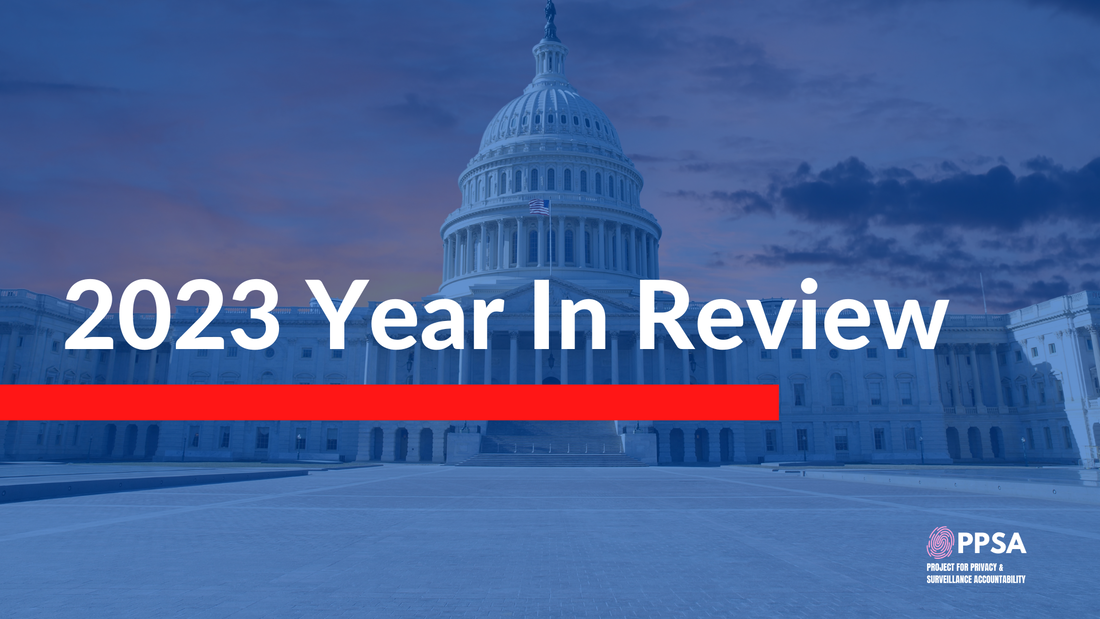
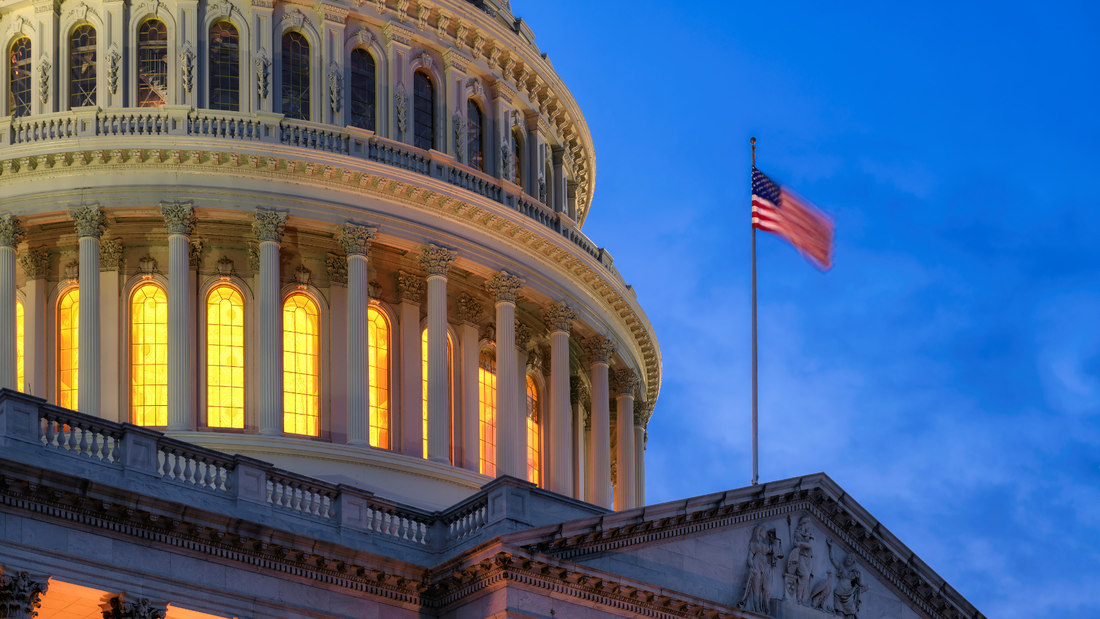
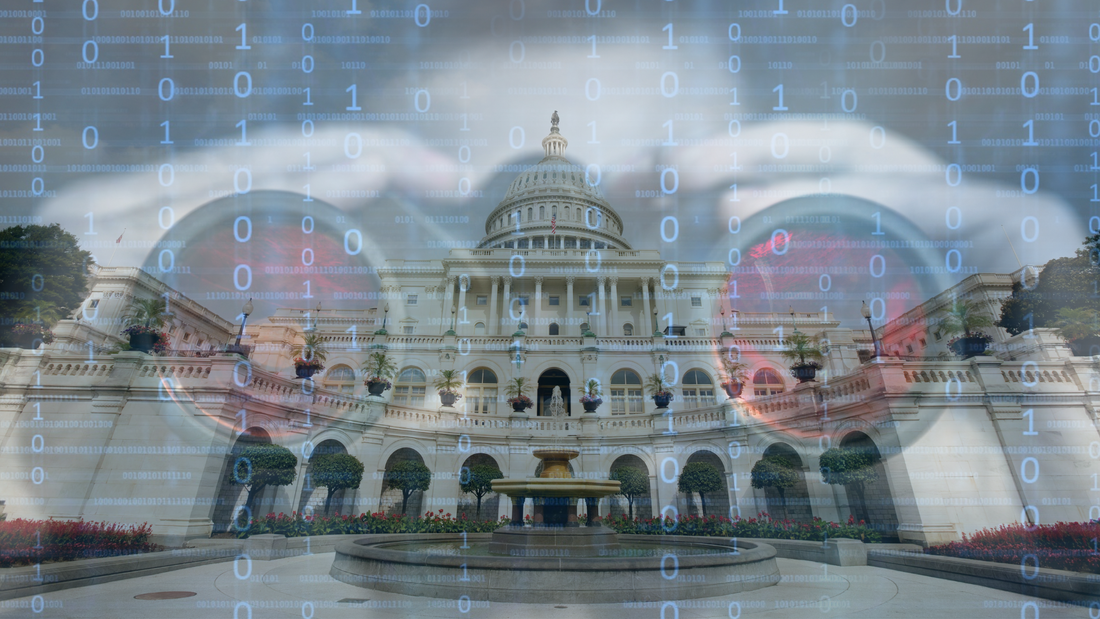
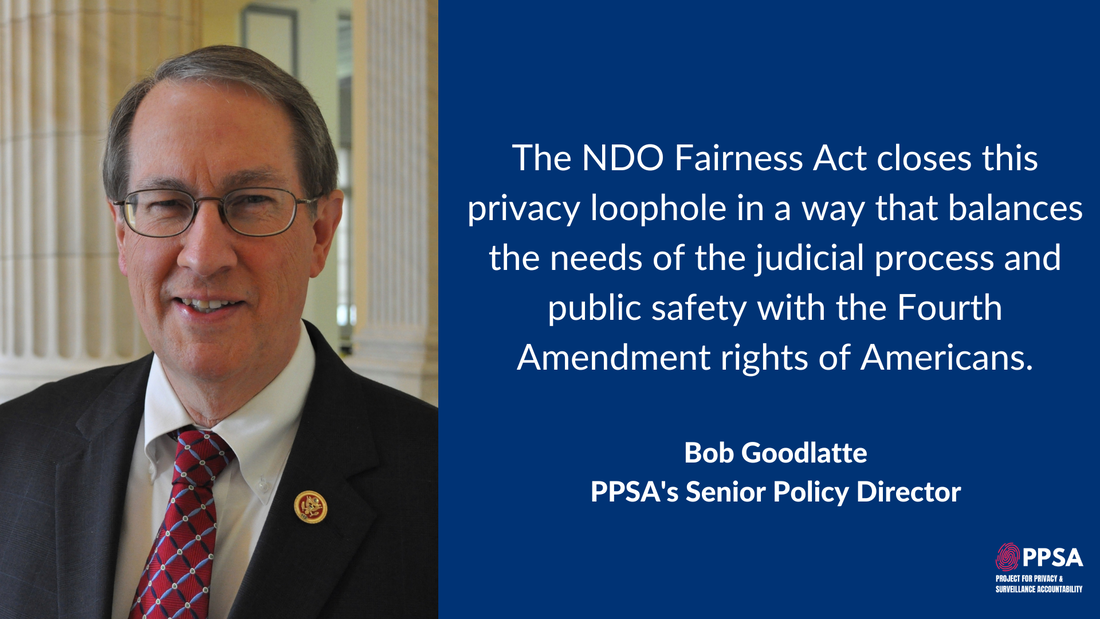
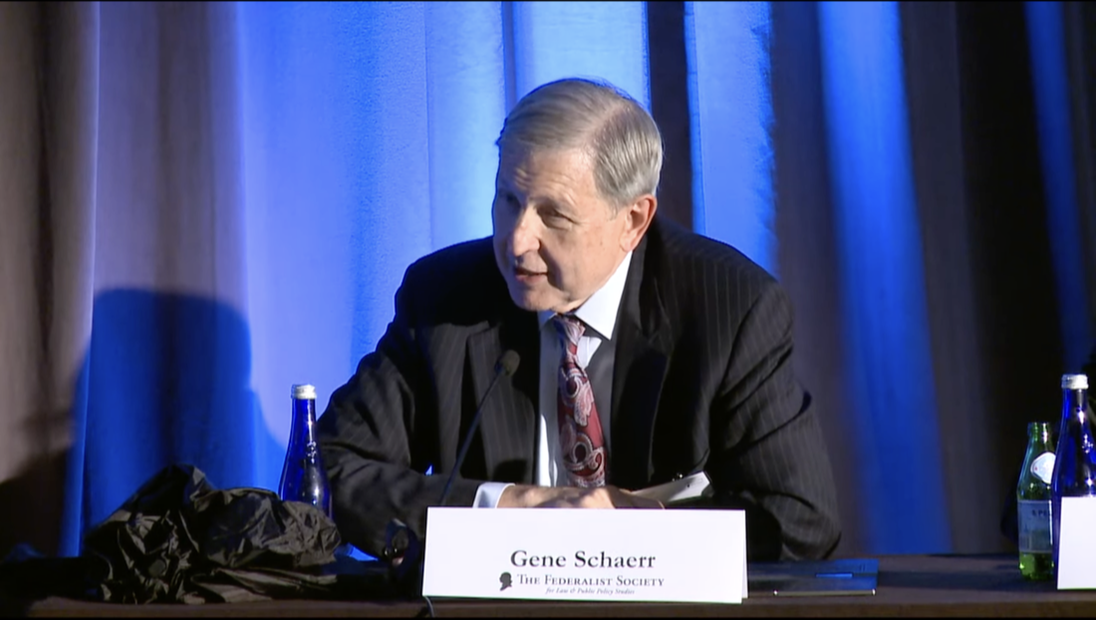
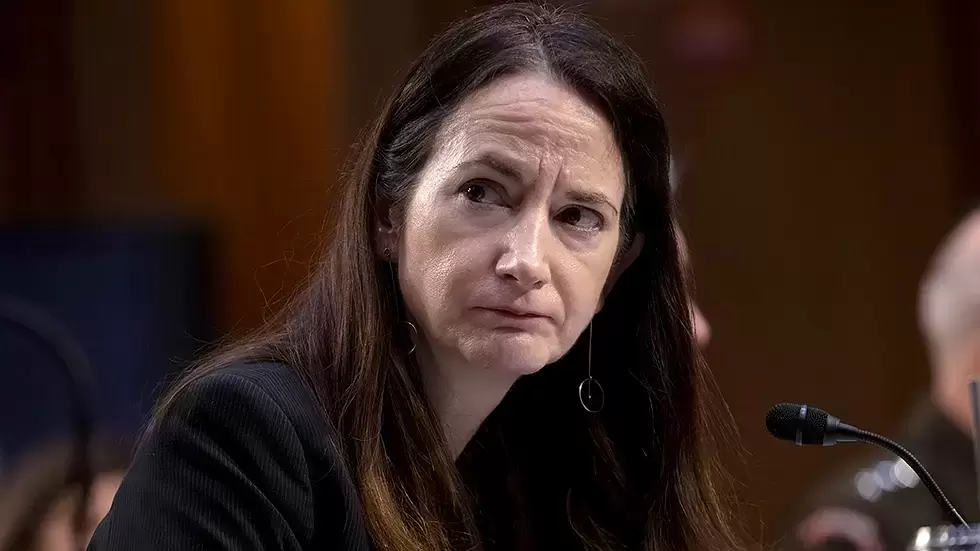
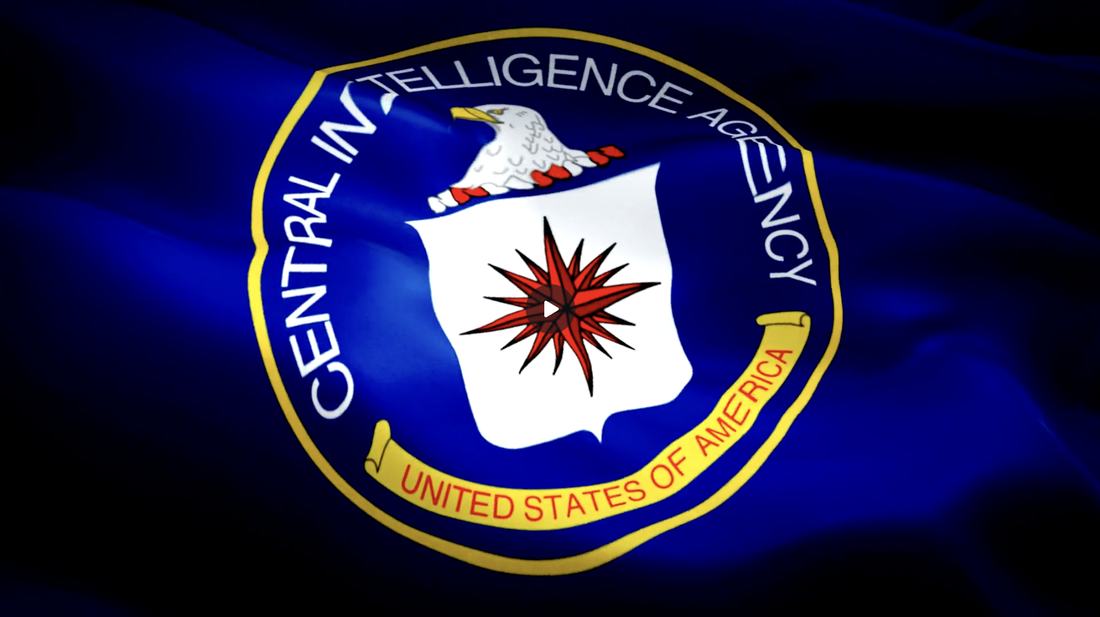
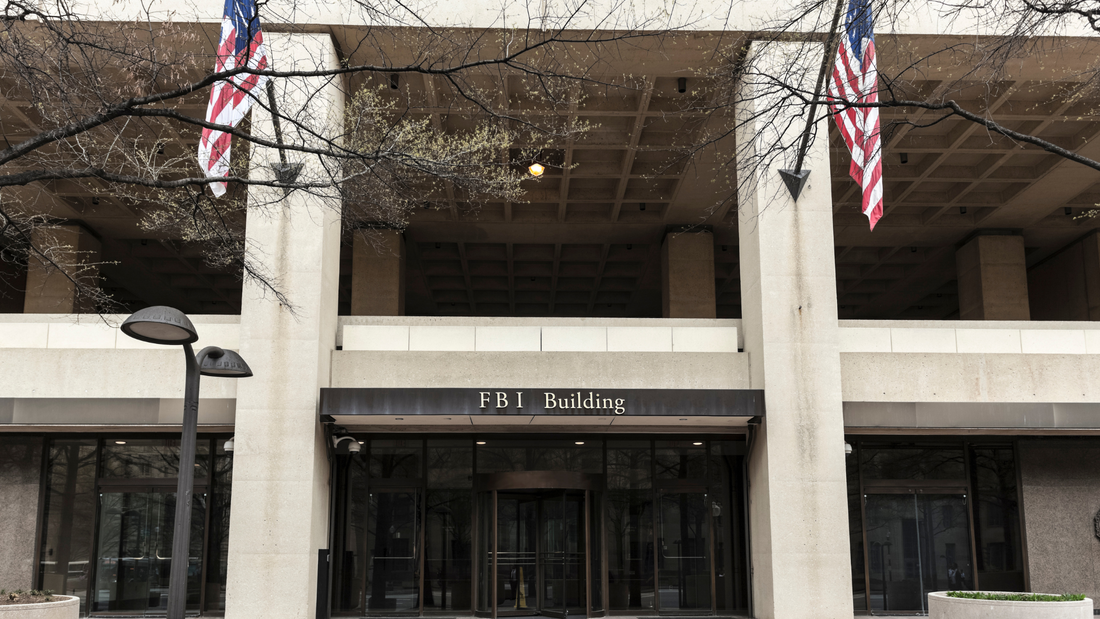
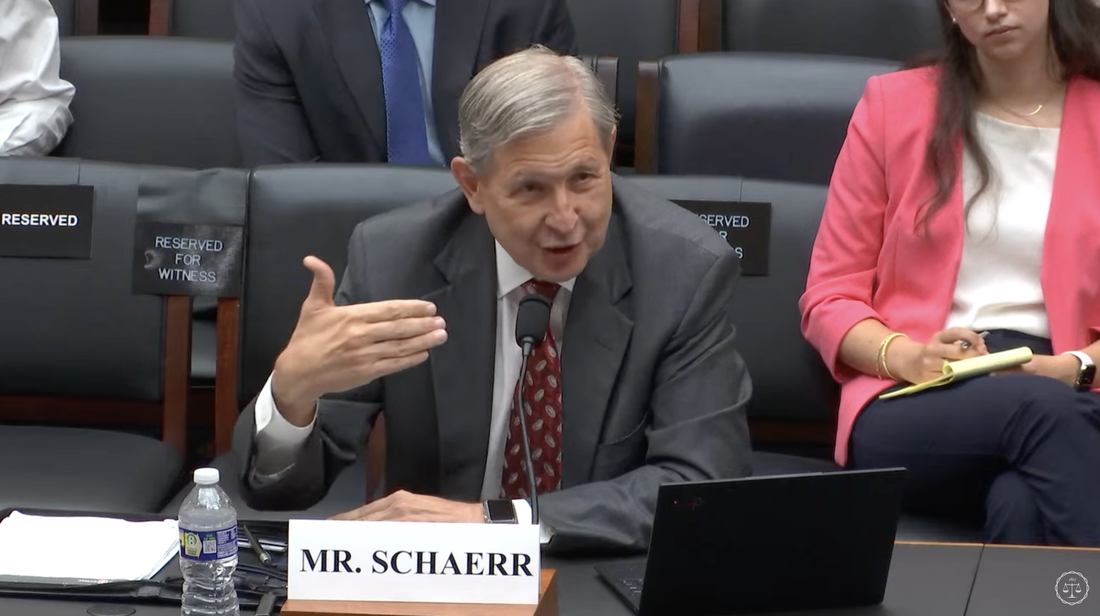
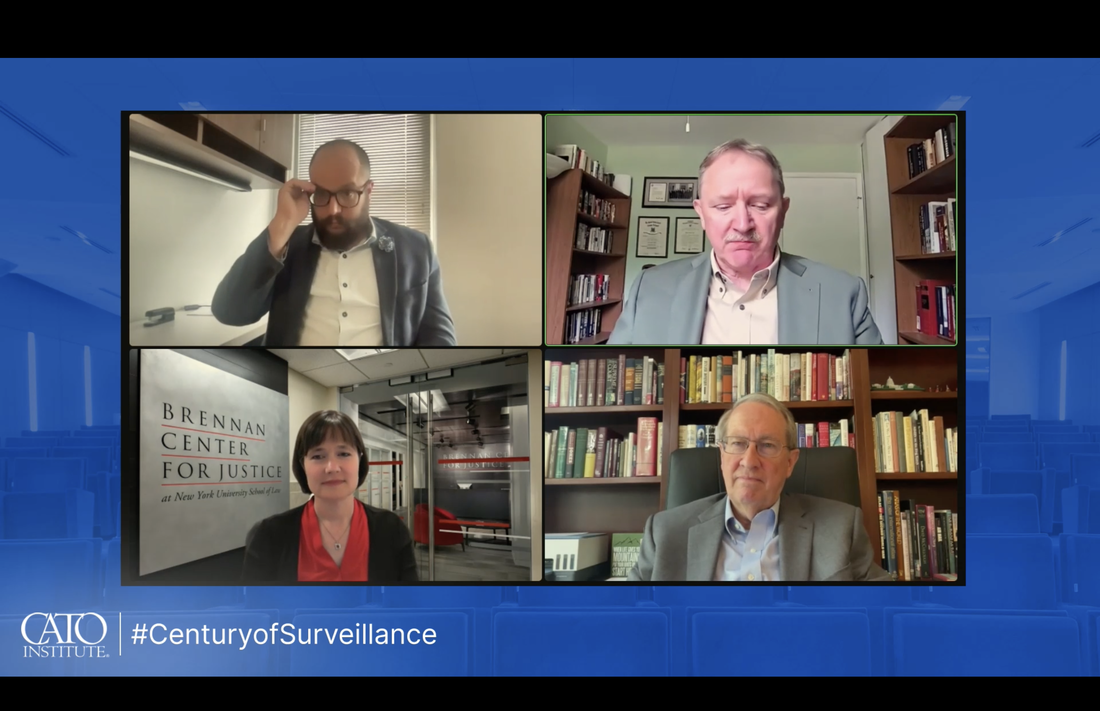
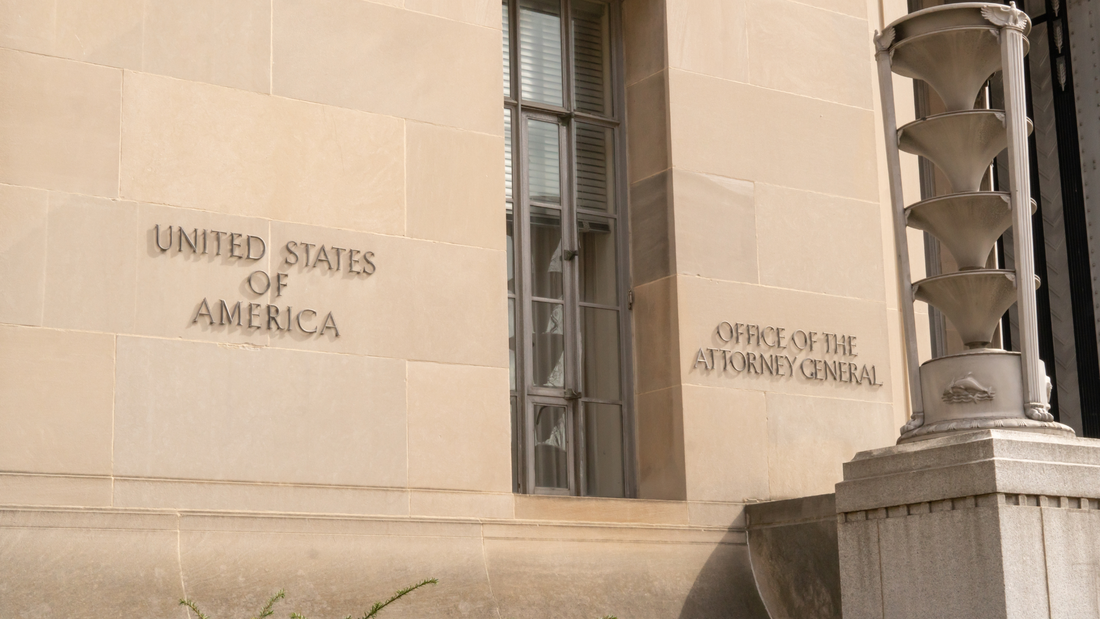
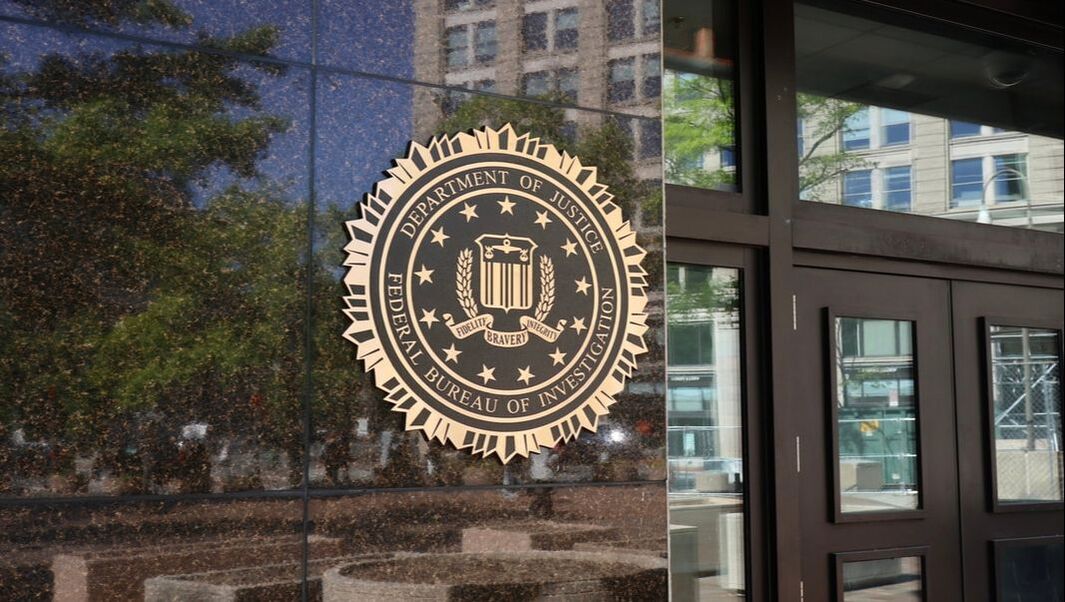
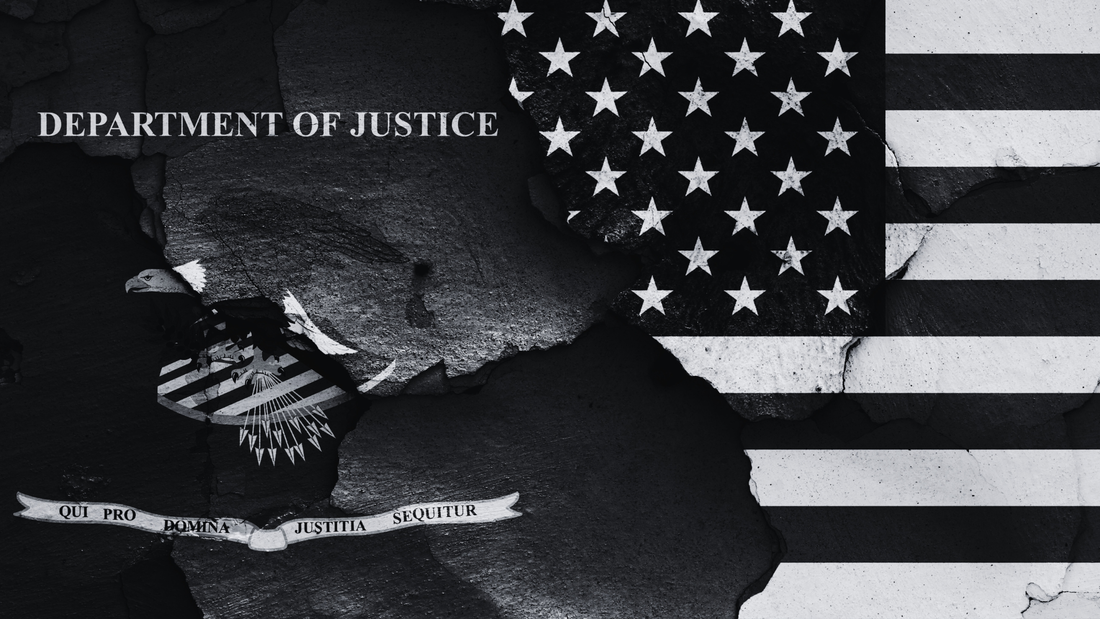
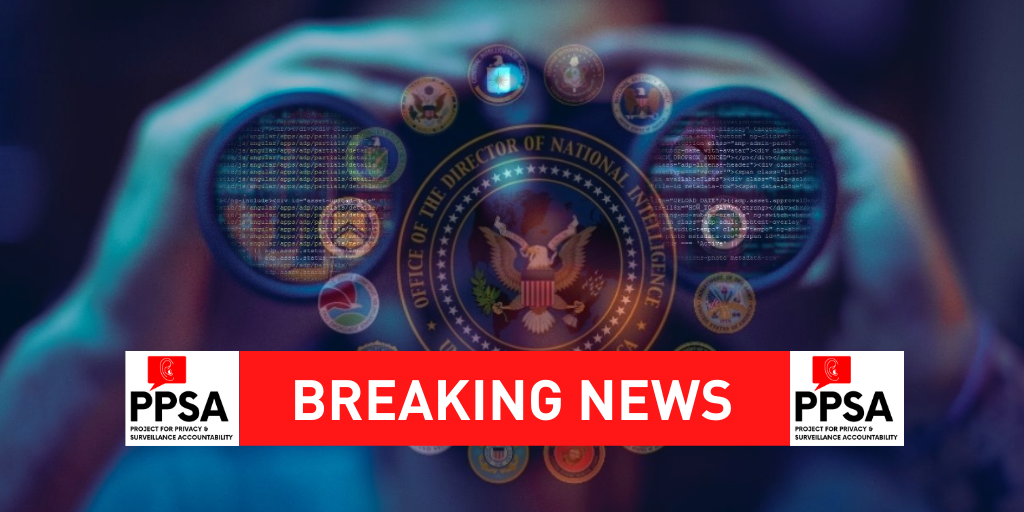

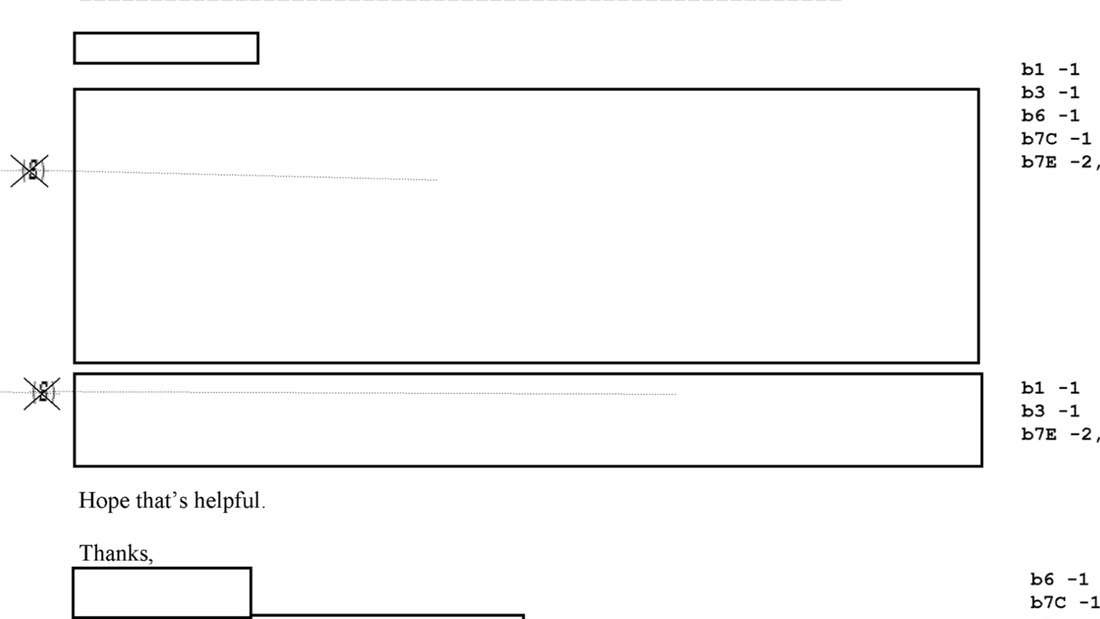
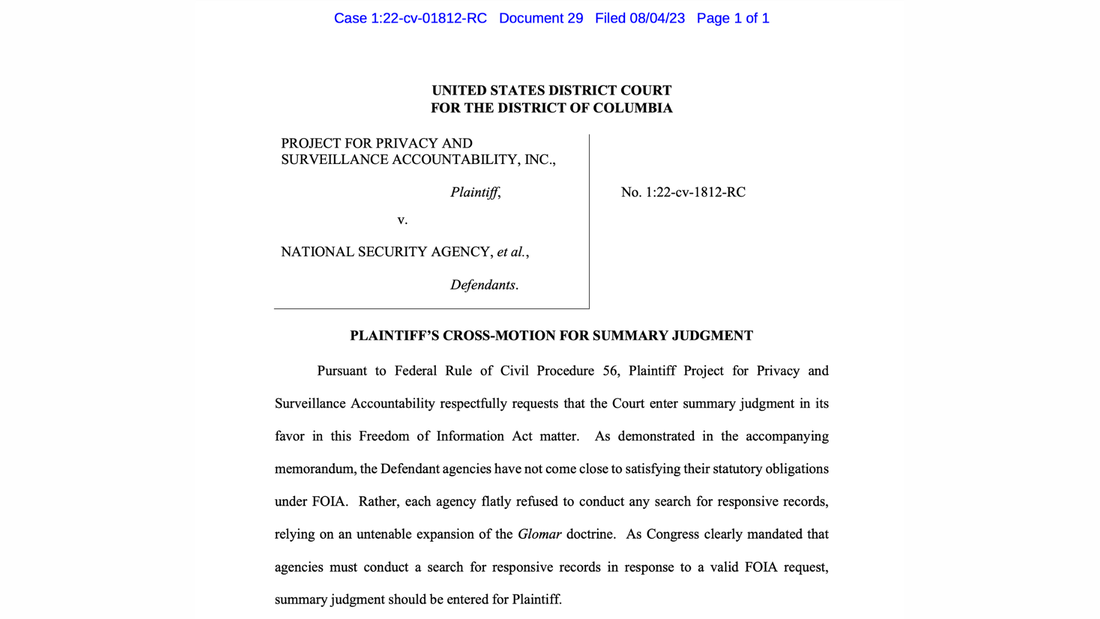
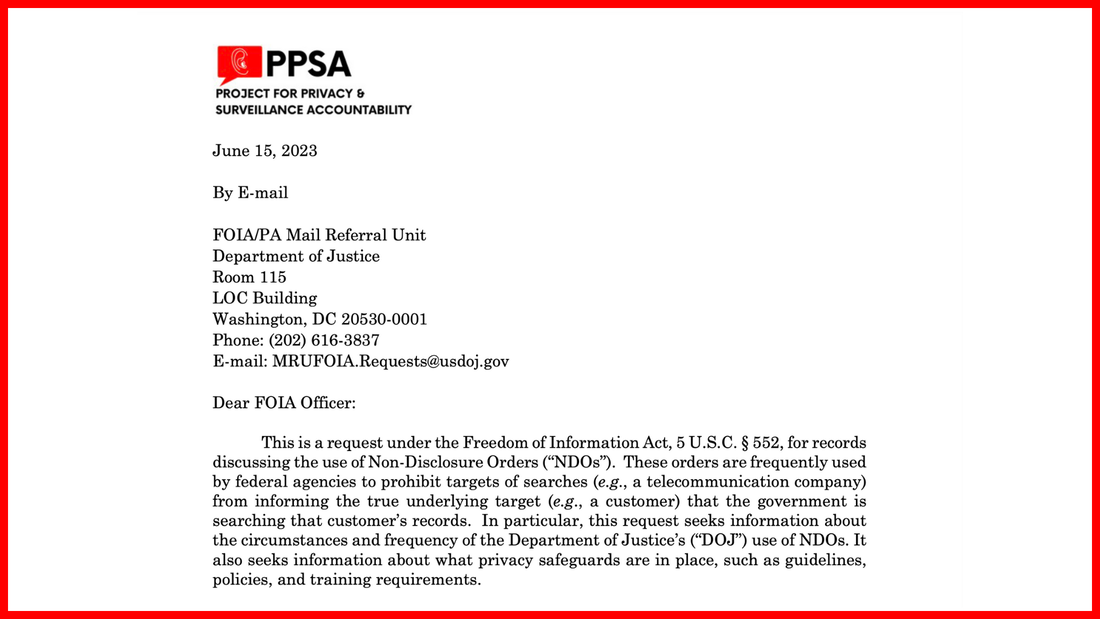

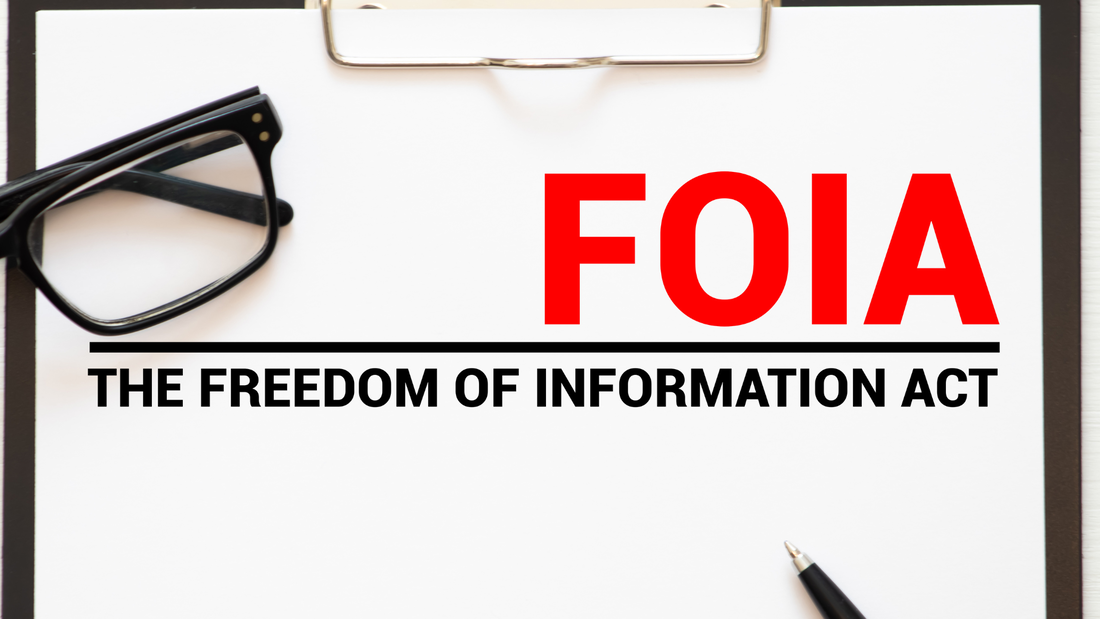

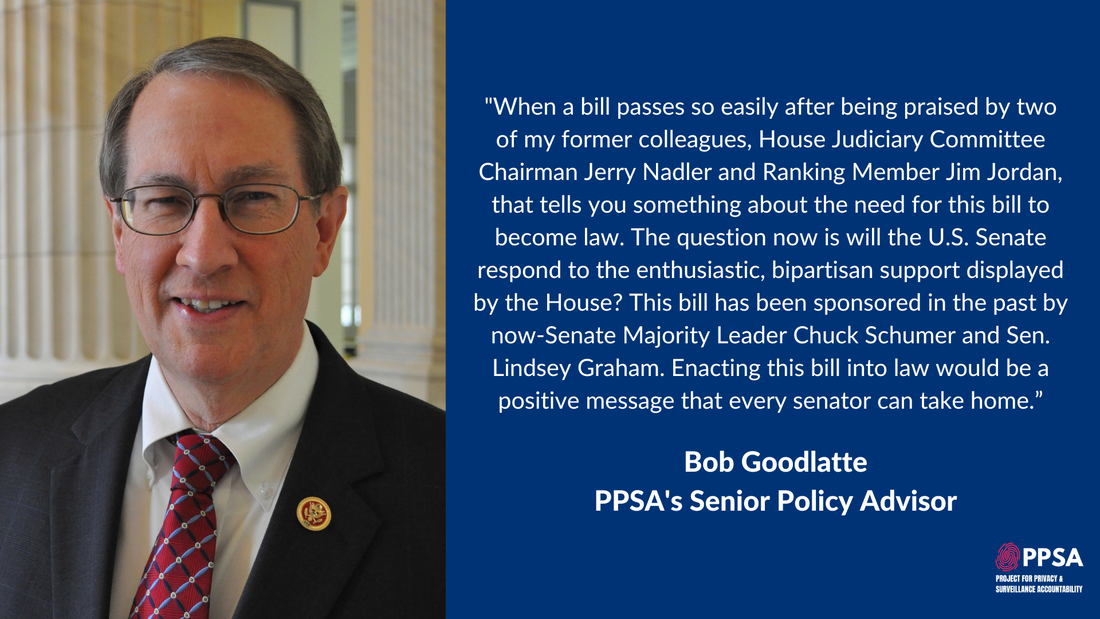
 RSS Feed
RSS Feed